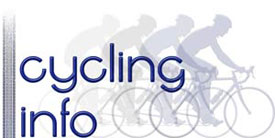
There are some days, when you can feel quite vulnerable pedalling a lonely furrow amidst the stream of passing cars and lorries. This week has been a salutatory reminder of the dangers on our road. Wednesday, I went for a 70 mile cycle ride to High Wycombe; where-ever I cycled I seemed to come across closed roads – The A40 was closed due to a fatal accidents. Later on the road to High Wycombe, another A road had just been closed due to a headon collision. The day before, I passed by a serious collision in Marston, Oxford. (Not the first time I’ve seen an accident at that particular junction.)
So with this grim anecdotal evidence, all in a short space of time, it was rather reassuring to stumble across this report, which states the health benefit of cycling far exceed the potential costs.
For the individuals who shift from car to bicycle, we estimated that beneficial effects of increased physical activity are substantially larger (3 – 14 months gained) than the potential mortality effect of increased inhaled air pollution doses (0.8 – 40 days lost) and the increase in traffic accidents (5 – 9 days lost). Societal benefits are even larger due to a modest reduction in air pollution and greenhouse gas emissions and traffic accidents.
Conclusions: On average, the estimated health benefits of cycling were substantially larger than the risks relative to car driving for individuals shifting mode of transport.
Citation: de Hartog JJ, Boogaard H, Nijland H, Hoek G 2010. Do The Health Benefits Of Cycling Outweigh The Risks? Environ Health Perspect :-. doi:10.1289/ehp.0901747
The bad news is that these statistics were calculated from the Netherlands. In the Netherlands, the incidence of bike accidents to distance travelled is one of the lowest in the world. In the UK and US, the typical average mortality from traffic accidents is likely to be higher than the average of 5-9 days of the Netherlands. But, even so, even if mortality rates in UK are triple Netherlands, the benefits of cycling still far outweigh costs. See: Cycling Fatality Rates by Country
Why Is Cycling Perceived as So Dangerous?
Why then do people avoid cycling for fear that it is dangerous?
- High Visibility of Traffic Accidents
- Low Visibility of poor health related illness. If you get heart disease or other health related problems, you don’t link it to a decision to drive rather than cycle.
- Cycling on a busy road can feel dangerous (with cars passing close by at high speeds). Stuffing your face with pancakes, doesn’t feel dangerous (it is quite the opposite)
- If a child was involved in a cycling accidents, the parents may feel guilty that they had allowed them to do something dangerous. If the child gets obesity onset diabetes in their 40s, they don’t feel guilty for allowing their kids to sit and play computer games all day.
Related

Leave a Reply